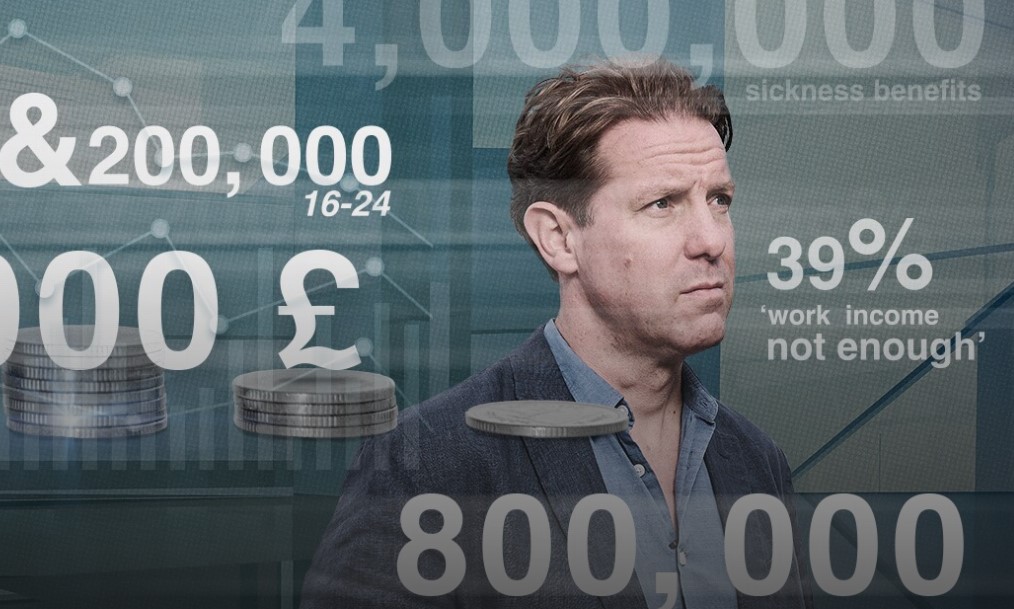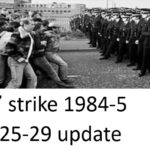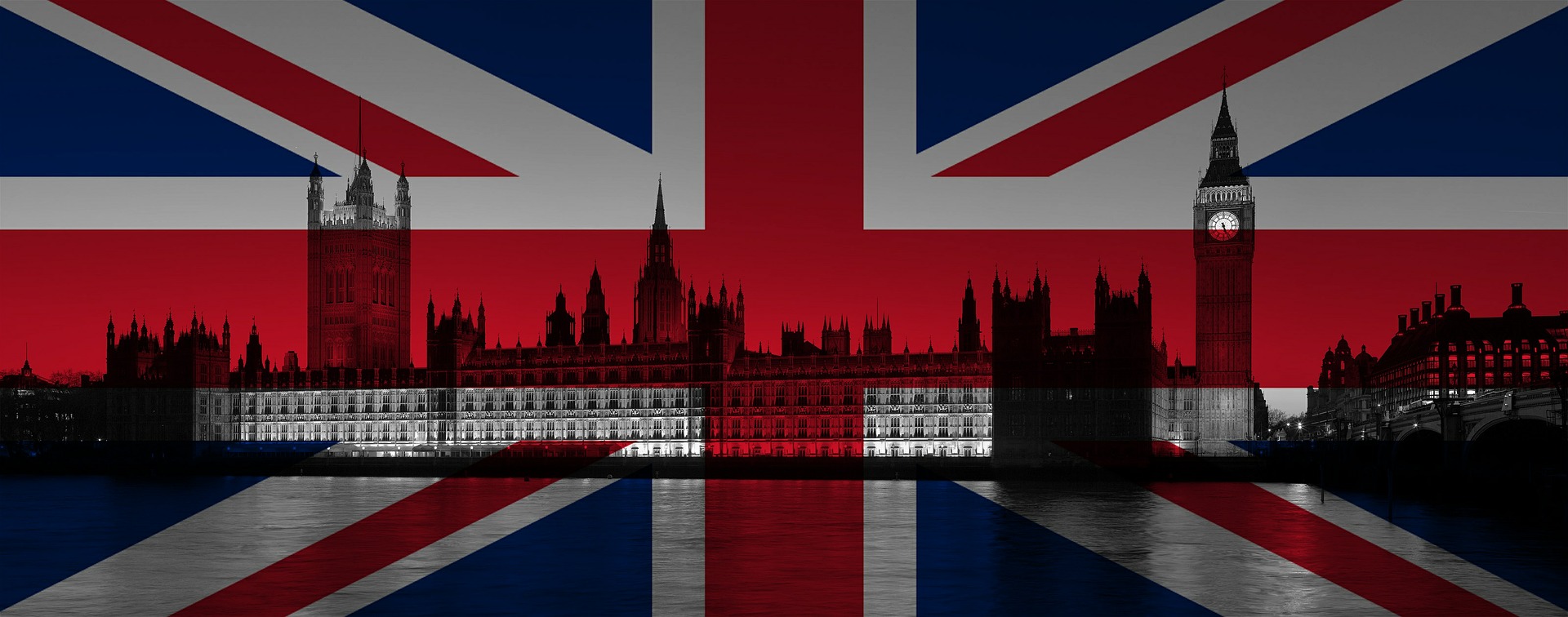 Dispatches: ‘Britain’s benefit scandal’
Dispatches: ‘Britain’s benefit scandal’Review by Mark Langabeer, Hastings and Rye Labour Party
Unfortunately for Channel 4, which is not usually so blatant, the narrator of this Dispatches programme was Fraser Nelson, a columnist for the Daily Torygraph (sorry, Telegraph). The whole thrust of his programme, unsurprisingly therefore, was the claim that the current welfare system supposedly ‘doesn’t work’ and the title more or less set the tone for the programme.
He argued that three million people of working age are claiming sickness benefits and it is costing £48bn and set to rise in the next five years. This figure has doubled in the last five years and nobody appears to know why. Of thosse in receipt of sickness benefit, more than two thirds have mental health issues.
Nelson interviewed Mel Stride, the Tory shadow Minister for the Department of Work and Pensions, who claimed that people’s diagnosis of mental health problems are often related to the “normal up’s and downs” in life and therefore shouldn’t be a reason for claiming sickness benefits. This guy is all heart.
Unfortunately, however, bending to what is a Tory agenda, Starmer’s DWP minister, Liz Kendal, agreed that the current system “isn’t working”. Frazer supposedly ‘discovered’ that the three year reassessment of Personal Independence Payments was stopped during Covid lookdown. I’m a PIP claimant and the DWP wrote to me, saying that I wouldn’t need an assessment until 2028. It was perfectly logical because my conditions is only likely to get worse and one of the reasons for ending reassessments every three years was cost.
The programme did point out that many claimants are waiting for treatment, with on man telling the programme that he was waiting for a referral for mental health issues and that was a year ago. What the programme never mentioned was the rise in sickness related benefit claims is a consequence of Tory austerity measures.
The old chestnut of people ‘gaming the system‘ was raised. Frazer interviewed a former DWP assessor who said that if a claimant stated that they had suicidal thoughts, it would put them at the top of the list for illness, and she had thought that many were simply lying. What qualifications she had to deduce that, other than her own personal prejudices, we weren’t told.
Comparing apples with pears
There was also a suggestion that the level of benefits was too high or at least similar to pay for those in work, clearly a nonsense. The programme reported that there were 800,000 job vacancies and one boss of an engineering company complained that they couldn’t attract suitable staff to be a trainee machinist, even though the annual salary was £26,000.
They didn’t know why this was, but suggested it could be due to the benefits system. This whole logic is like comparing apples with pears, because sickness benefits are claimed by those that are unable to work. Unemplyment benefit is a miserable sum of around £70 a week.
What was suggested, which may have a grain of truth in it, was that some people feared they may lose benefits if they tried to do some kind of employment and failed to hold down work. There is a bit of a cliff edge between getting some benefits and making even a modest income from part-time work.
The programme never mentioned the fact the Tories introduced a universal benefit system which rolled around six different benefits into one and one of the worse features of Universal Credit was a five week waiting period before any payments are made. This was supposedly intended to mirror the world of work, but in reality, it was purely punitive and has caused real hardship.
The truth is that those who depend on welfare have had to bear the brunt of austerity. For fourteen years under the Tories, benefits were cut and wages held back while prices and rents were let rip. The result is that the rich have got richer and poor have got poorer, so the gulf between the richest and poorest in society is probably greater than at anytime, or at least since the days of Queen Victoria.
A useful statistic is to compare the cost of welfare with Gross National Product, which has remained the same for the past 40 years. Before, it was around 3% and that is the same as it is today.
[The Dispatches programme, from which the feature image is taken, can be seeen here.]
 TV review: the 1984 plot to kill Margaret Thatcher - By Mark Langabeer, Hastings and Rye Labour Party member The BBC recently broadcast a programme on the attempt by the IRA to assassinate Margaret Thatcher
TV review: the 1984 plot to kill Margaret Thatcher - By Mark Langabeer, Hastings and Rye Labour Party member The BBC recently broadcast a programme on the attempt by the IRA to assassinate Margaret Thatcher Review: Rebuilding our Trades Unions - Dave Putson reviews this recent Left Horizons booklet by Steve McKenzie which is based on his long experience in the trades union movement. “Rebuilding Our
Review: Rebuilding our Trades Unions - Dave Putson reviews this recent Left Horizons booklet by Steve McKenzie which is based on his long experience in the trades union movement. “Rebuilding Our Letter: Tory Party Leadership Contest - By Mark Langabeer (Hastings and Rye Labour member) The Tory Leadership contest seems pretty irrelevant for most workers. However , the election does give an
Letter: Tory Party Leadership Contest - By Mark Langabeer (Hastings and Rye Labour member) The Tory Leadership contest seems pretty irrelevant for most workers. However , the election does give an Is there really a £22bn ‘black hole’? - Andy Ford, Warrington South CLP member BBC’s Radio 4 programme More Or Less focuses on, and often debunks, fake statistics, hence its title. It recently
Is there really a £22bn ‘black hole’? - Andy Ford, Warrington South CLP member BBC’s Radio 4 programme More Or Less focuses on, and often debunks, fake statistics, hence its title. It recently Miners’ Strike 1984-5 – Weeks 25-29 Update - Throughout this 40th anniversary year of the miners’ strike, Left Horizons will publish regular bulletins on important issues and developments that occurred during the strike,
Miners’ Strike 1984-5 – Weeks 25-29 Update - Throughout this 40th anniversary year of the miners’ strike, Left Horizons will publish regular bulletins on important issues and developments that occurred during the strike,

